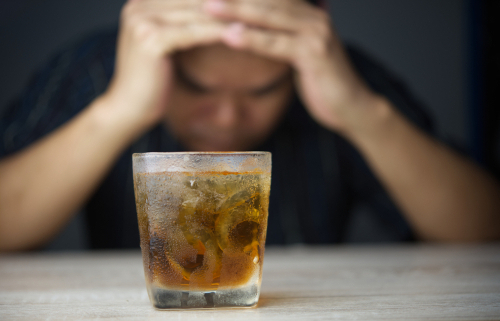How To Treat Alcohol Withdrawal
Table of Contents
Alcohol is a legal substance for consumption by adults in America over the age of twenty-one. It has been stated by the National Institute on Alcohol Abuse and Alcoholism (NIAA), “nearly eighty-seven percent of adult individuals in America have had at least one alcoholic drink in their lives.” Due to the fact that alcohol is incredibly easy to access, it should come as no surprise that many individuals struggle with alcohol abuse or alcoholism. The more an individual abuses alcohol, the higher the tolerance level he or she builds up in his or her system to alcohol. This will result in the individual continuously increasing his or her drinking at an exponential rate. One’s body will become accustomed to functioning with the alcohol present and when its effects wear off an individual will suffer withdrawal symptoms. Hence, alcohol withdrawal happens when an individual has built up a tolerance to alcohol by drinking heavily and/ or regularly for weeks, months, or years and he or she significantly reduces or ceases all alcohol consumption.
Alcohol Withdrawal Symptoms
The withdrawal symptoms a person could experience can range from mild to severe in nature. Mild symptoms can begin as soon as six hours after one’s last drink. The more severe withdrawal symptoms can show up as early as twelve to twenty-four hours after one’s last drink. Harvard Medical School provides a list of possible withdrawal symptoms, some of which include:
- Vomiting
- Shaky hands
- Headache
- Anxiety
- Nausea
- Confusion
- Fever
- Excessive sweating
- High blood pressure
- Racing heart
- Delusions
- Hallucinations
- Agitation
- Insomnia
- Seizures
The duration of the symptoms as well as the severity will depend on many factors. The personal health history of the individual, the amount of alcohol abused, the potency of the alcohol, the duration of one’s abuse, and if the individual used other drugs simultaneously will all weigh into the withdrawal symptoms that may be experienced by the individual.
How To Treat Alcohol Withdrawal
Every individual’s alcohol withdrawal experience will vary and will be unique to each person. The first step to treating alcohol withdrawal is to successfully complete detox. Detox is the process that cleanses one’s body of all foreign substances. While some may think detoxing from alcohol is no big deal, for individuals who are addicted to alcohol, this notion could not be farther from the truth. It is highly recommended that when detoxing from alcohol, an individual should do so in a medically supervised setting. The withdrawal symptoms that occur as a result of detoxing from alcohol can be incredibly uncomfortable. In a medically supervised setting, an individual will be provided with twenty-four-hour medical support and care. In some cases, certain medications can be given to individuals to help alleviate some of the discomforts associated with their withdrawal symptoms. A medically supervised detox can also assure the safety of the individual throughout this process.
Receive Treatment with Annandale in Pasadena?
Annandale Behavioral Health is a private wellness center located in the beautiful hills of Pasadena, CA. Our center provides the ideal environment for guests to reconnect with nature while receiving a premium and personalized treatment. At Annandale, we honor each person’s individuality and have a core belief that everyone is capable of achieving true wellness. We understand that in order to heal, every person in recovery deeply benefits from a customized and tailored treatment plan, which we carefully develop for each of our guests. Our multidisciplinary clinical team is made up of highly regarded psychiatrists, physicians, therapists, nursing, and support staff.
Annandale Behavioral Health offers a full continuum of care, including medically supervised detox, stabilization, residential treatment, and aftercare services. We are here to support you every step of the way to help you learn how to lead a healthy, authentic, and fulfilling life that both promotes and supports true wellness.
If you are concerned for yourself or a loved one in regard to mental illness, substance abuse, and/ or addiction, please do not hesitate to reach out for guidance. Our admissions team is available to answer any general questions regarding substance abuse, addiction, mental health issues, treatment, and/or specific questions about our program here at Annandale Behavioral Health. We welcome the opportunity to discuss how we might best be able to help you or your loved one in the recovery process. Feel free to reach us by phone at 855-778-8668 or through our contact form. We look forward to supporting you on your journey.







